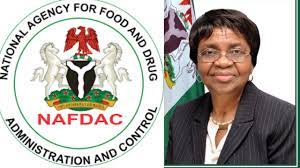8.6% Of African COVID-19 Survivors Still Having Symptoms – Research

Researchers discovered that almost half of COVID-19 survivors in African countries are still dealing with at least one persisting symptom, which lowers their quality of life and makes it harder for them to work.
After combining data from 25 studies conducted by researchers in various African countries with 29,213 individuals, they found that 48.6% of subjects had Long COVID symptoms.
The findings of the study revealed that symptoms were more common in older patients and those who had been hospitalized.
Fatigue emerged as the most common, affecting 35.4 per cent of participants, potentially leading to productivity issues and economic setbacks. Mental health concerns, such as post-traumatic stress disorder (PTSD) and anxiety, were observed in up to 25 per cent of patients.
Cognitive impairment, difficulty concentrating, and headaches affected 10 to 15 percent of participants, while 18 percent of them reported shortness of breath and 11 per cent experienced heart palpitations.
According to the Centre for Disease Control and Prevention (CDC), Long COVID is broadly defined as signs, symptoms, and conditions that continue or develop after acute COVID-19 infection.
“People with Long COVID can have a wide range of symptoms that can last weeks, months, or even years after infection. Sometimes the symptoms can even go away and come back again. For some people, Long COVID can last weeks, months, or years after COVID-19 illness and can sometimes result in disability. Long COVID may not affect everyone the same way. People with Long COVID may experience health problems from different types and combinations of symptoms that may emerge, persist, resolve, and reemerge over different lengths of time,” CDC further explained.
The Agency said that even though most people’s symptoms gradually improve after having COVID-19, a patient should still discuss his or her symptoms with a healthcare physician to see whether he or she may have Long COVID.
The symptoms included exhaustion or fatigue that interferes with everyday activities, symptoms that worsen with physical or mental exertion, fever, difficulty breathing or shortness of breath, cough, chest pain and heart palpitations.
Additional symptoms include diarrhoea, stomach pain, joint or muscle pain, rash, altered menstruation periods, brain fog, headache, insomnia, lightheadedness, pins and needles sensations, and changes in taste or smell.





